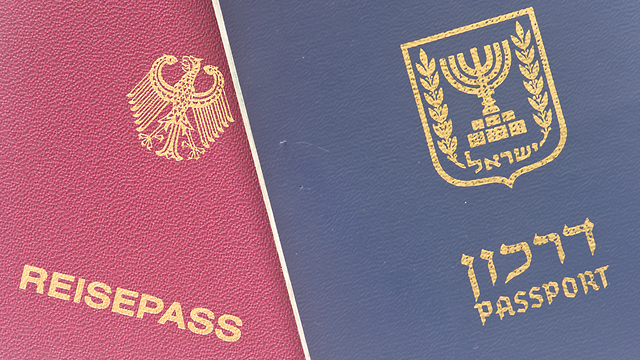An official report compiled by the Population and Immigration Authority and Israeli delegations abroad has revealed a datum that the state doesn't really love hearing: the number of Israelis that have renounced their citizenships. 8,308 in the past 12 years.
The report further reported that the year with the greatest number of Israelis who have become non-Israelis was last year. 749 persons gave up their passports and blue identity cards in 2015, versus a mere 470 in 2003. This drastic increase, a rate of 18 percent, also held in relation to 2014, when 635 persons renounced Israeli citizenship.
The reasons for renouncing citizenship are varied: Many of the applicants explained that they had to do so as a condition for receiving a foreign citizenship. Others said that their lives were now based abroad and that they don't envisage themselves returning to Israel. Still others said the law that requires them to enter Israel on their Israeli passports simply irks them.
The country whence the highest number of applications to renounce Israeli citizenship came was Germany, followed by the United States, Austria, the United Kingdom, and the Netherlands. In 2015 alone, 154 former Israelis in Germany renounced. This is caused by Germany's prerequisite that those requesting naturalization must renounce all other citizenships.
Sources in the Ministry of Foreign Affairs say that many do so with heavy hearts, and some even have broken into tears at the Berlin embassy; reportedly, only a very few seem to do so gleefully. For Israelis applying for German naturalization by virtue of their being second- and third-generation descendants of former Germans who lost that citizenship under the anti-Semitic laws of the Third Reich, the requirement to renounce other citizenships is waived.
An Israeli interested in renouncing their citizenship needs to file an official application with an Israeli embassy abroad. Their application is transferred to the Population and Immigration Authority, where it undergoes thorough examination. A response is provided after three to six months. In many cases, the answer is negative: Over the past dozen years, a quarter of such applications have been rejected, with the peak year being 2014, when about half of the applications were not granted.
How does such an application get rejected? The state may choose to do so, for example, when the IDF refuses to discharge a citizen from military service or when they are in financial debt in Israel. The applicant is required to prove that their life is not centered in Israel and that they hold another citizenship or residency so that they will not end up stateless as a result of Israel granting their application for renunciation.
And what happens if they end up regretting their decision and want to take it back? Renouncing citizenship is an extreme step, but it is reversible. However, the route to regaining Israeli citizenship is a long and bureaucratic process bound in a significant amount of paperwork and run-around.

Renouncers must hold foreign residency.
Photo: Shutterstock.
מומלצים

















